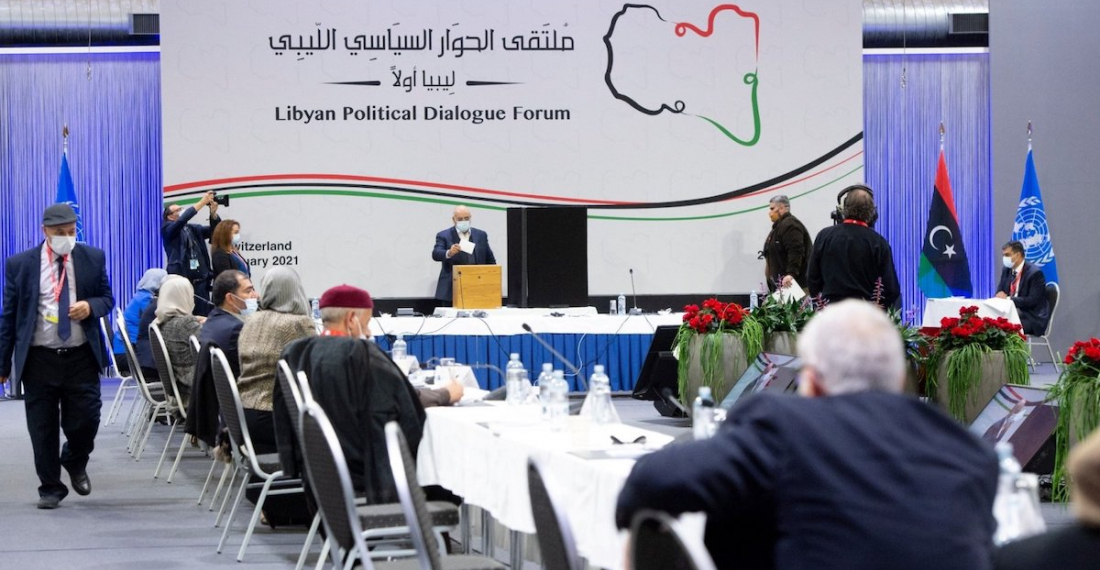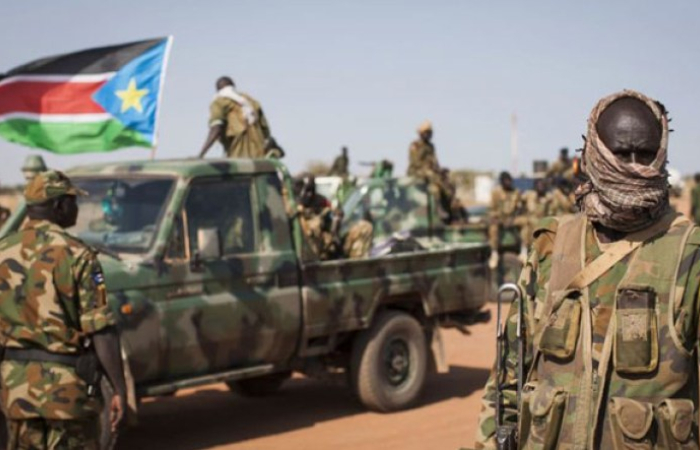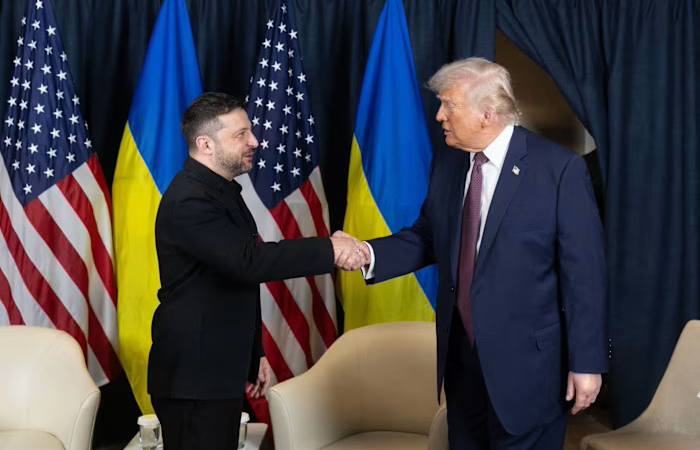Exhausted by a decade of conflict, Libyans have moved surprisingly fast to implement a peace deal that some thought impossible only a few months ago. In this op-ed for commonspace.eu, Noman Ahmed argues that deep-rooted internal divisions, greed among leaders, and the shadow of external patrons, may yet frustrate the quest for peace.
As conflicts rage on in the Middle East and beyond, the recent ceasefire in Libya and the formation of the new unity government was welcomed globally with relief. It was unexpected that the battle in which several foreign countries heavily invested could end so quickly. Libya has been ravaged by conflict for an entire decade following the end of a long lasting brutal regime. With a society of largely tribal components and an abundance of arms and resources, it was not so difficult to envisage that the country could drift towards instability.
Now, after a bitter civil war, there is a Government of National Unity (GNU) in Libya which brings together the two major factions that had existed for the past six years, but the challenges ahead of this government remain tough. Libya faces several external threats, especially if political groups continue to maintain ties to foreign entities. There are also subtle internal divisions amid a rushed peace process, and all this contributes to a fragile peace.
Regional observers noted the success of the Libyan peace model, and in fact suggested that it could work for other conflicts too, for example in Yemen. Nonetheless, there are several considerations that make the Libyan peace not quite the success it could be.
From a regional perspective, both Egypt and Turkey managed to put their differences aside and support the GNU, which overall is a positive development for Libya. The rapprochement between Egypt and Turkey can be best attributed to the “maritime file”, since the two countries demonstrated they may reach an agreement in their dispute over maritime delineation in the Eastern Mediterranean. Yet, both Egypt and Turkey still have differences over a number of other issues, and full normalisation of relations may not happen, and if it does, it may not last long. The rapprochement between Egypt and Turkey stems out of necessity and not choice, and will require a great deal of attention to maintain. For now, both countries have drawn their red lines and publicly engaged in supporting the transition phase in Libya. However, if Egypt and Turkey were to confront each other again, Libya could once again be the political – and possibly military - battlefield for these tensions. Both countries still maintain cordial ties with particular political actors in Libya and they could indeed utilise these actors in a proxy manner if future tensions were to arise between them. In addition, even if Turkey understands the worries stemming from Cairo, it has insisted on maintaining its presence in Libya, whilst other Libyan factions know well that there is always a friend for them in Cairo.
At the local level, the GNU faces a diverse set of challenges. First, it is not able to address the multiple divisions and grievances within the Libyan political landscape. Many of the tribal components in Libya are not openly in favour of the new government or the members represented in it. Eastern Libya’s strongman, Khalifa Haftar, appears to have lost the initiative but is still capable of garnering influence among the various tribal components, and he may still be able to exploit the presence of irregular Russian and Sudanese mercenaries.
In addition, the ongoing political and security situation in Libya’s southern neighbour, Chad, poses a risk to the success of the GNU in the security field. The GNU has poor control over the southern part of the country which works in favour of the arms traffickers and militants.
Many of the politicians that were active on the Libyan political scene over the past six years are also absent from the new government and it is unclear whether those political figures have closed the active chapter of their political career. The new interim leadership also has its differences within it. Asharq Al-Awsat recently reported that there were differences between the Presidential Council and the prime minister, and between the prime minister and the foreign minister. A combination of mercenaries, poor governance and unaddressed political grievances could well be a recipe for destabilisation that hinders the work of the new unity government.
As for the peace process itself, the transition government has a short time frame to prepare for successful elections. There are key security and logistical issues that occupy the agenda of the GNU which can easily distract it from preparing for a suitable election environment. An eight-month transition phase to prepare for elections after a long conflict is unusual. Libya hopes to have elections and a fully fledged government by the beginning of next year but the country has little experience in conducting national elections. A rushed elections experience will not please certain actors, who can easily turn into spoilers. Ensuring political accessibility for all of Libya’s social, political and cultural communities must remain a priority.
Nevertheless, the formation of a Government of National Unity is a success of international diplomacy, and an expression of the local desire for peace. The task that the GNU has been allocated throughout the transition period is an important test for all Libyans, and the prime minister, Abdelhamid Dbeibah, asked his countrymen and the international community to be patient with the transition process. It is now crucial to support Libyans in their efforts to bring lasting peace to their country which is not easy by any means. And as in any other conflict, greed and the desire of power can only bring the country to further chaos especially if exploited by foreign actors who still maintain an influence in Libya.
Source: Noman Ahmed Ashraf is Research Associate focusing on Europe’s Southern Neighbourhood at LINKS Europe.
Photo: Delegates cast their vote to elect an interim Libyan in February 2021.







